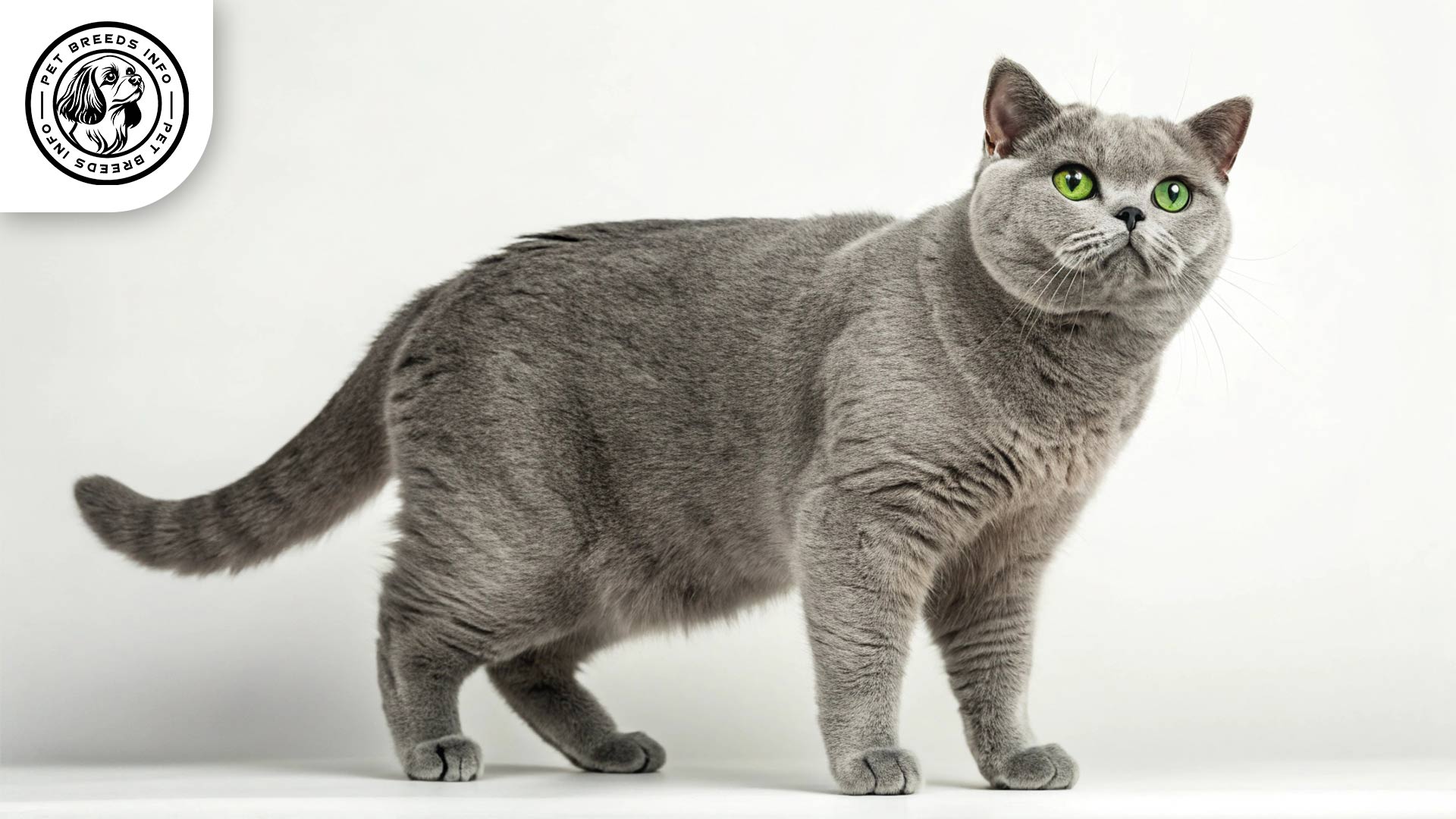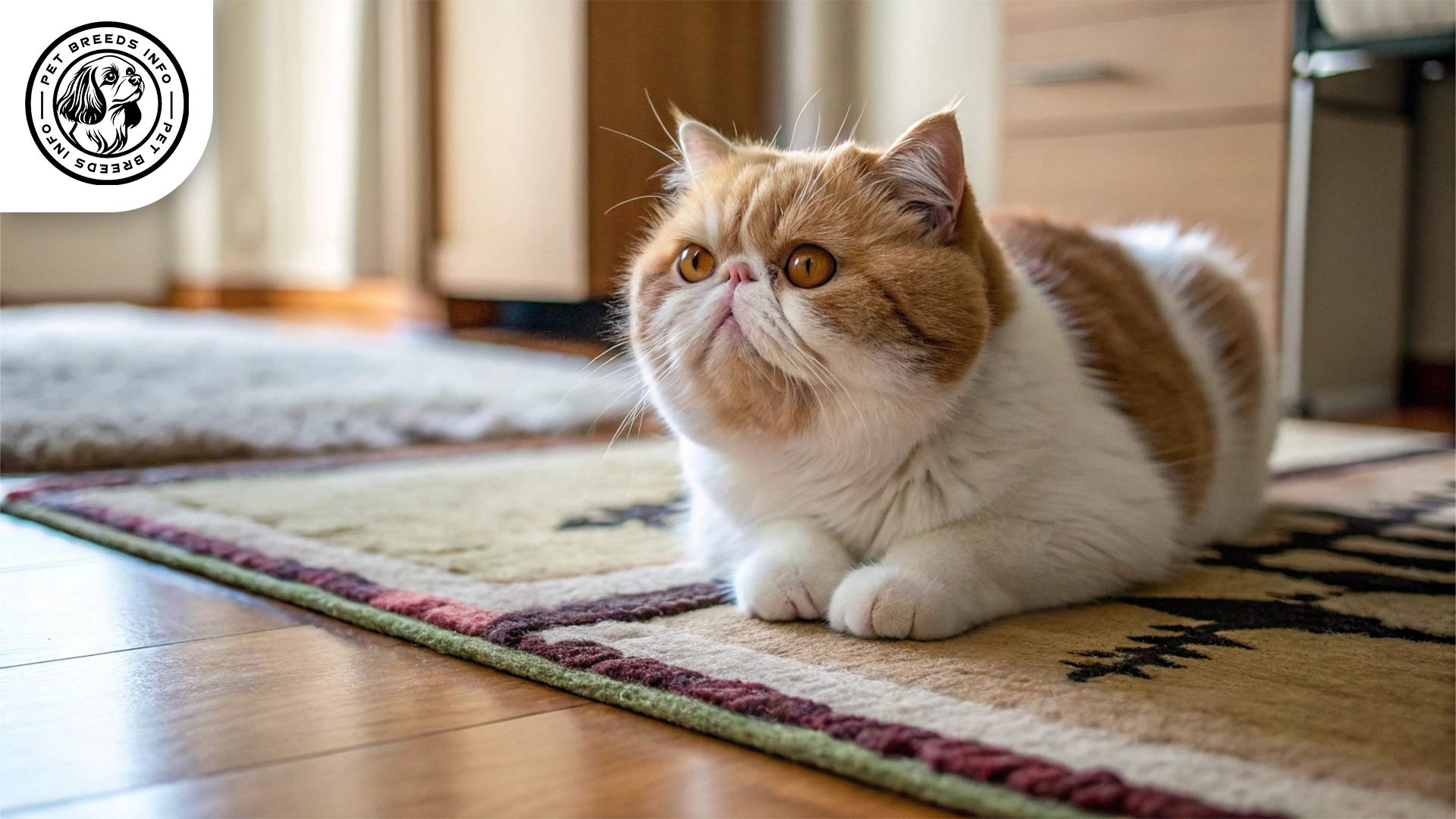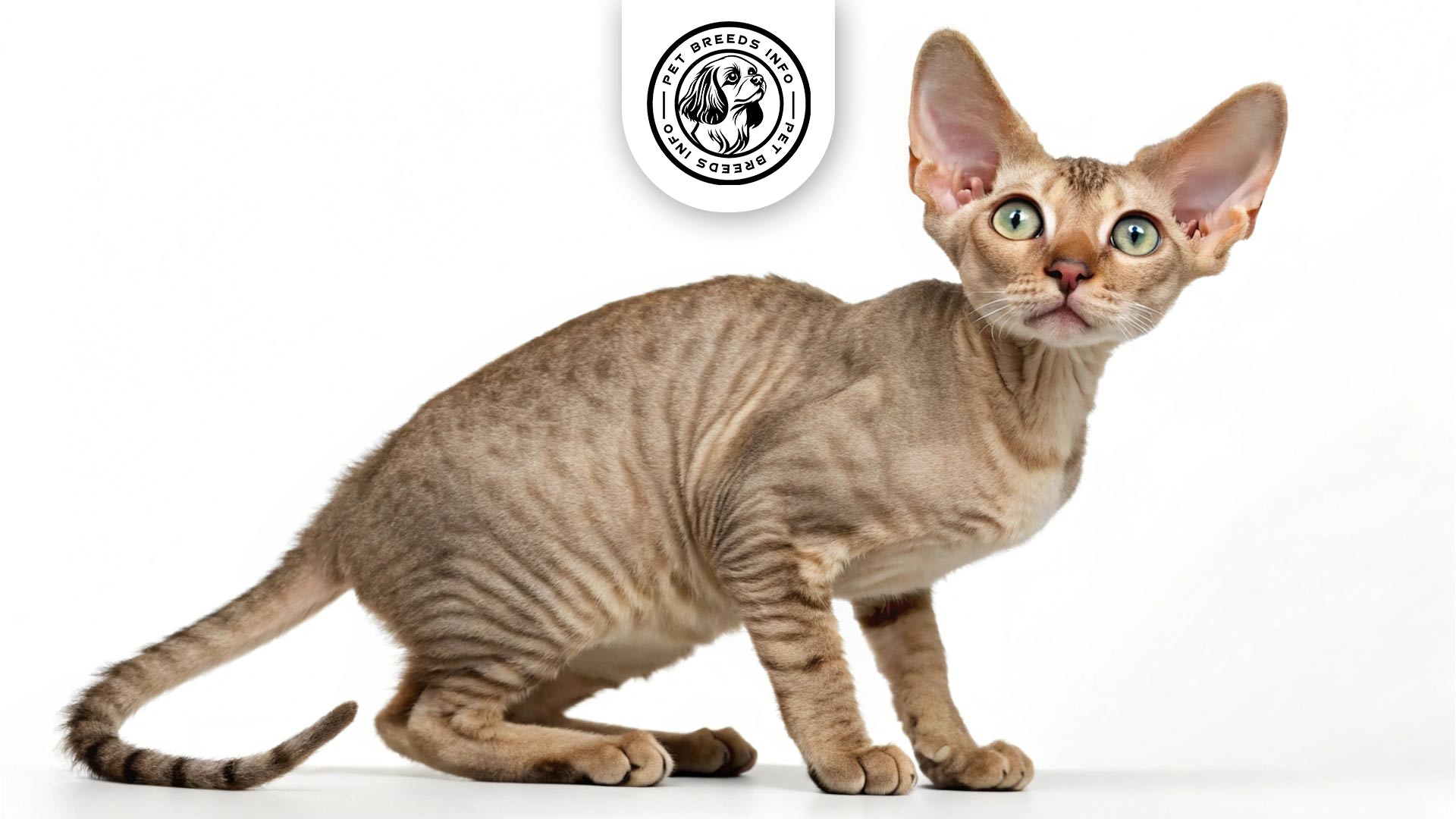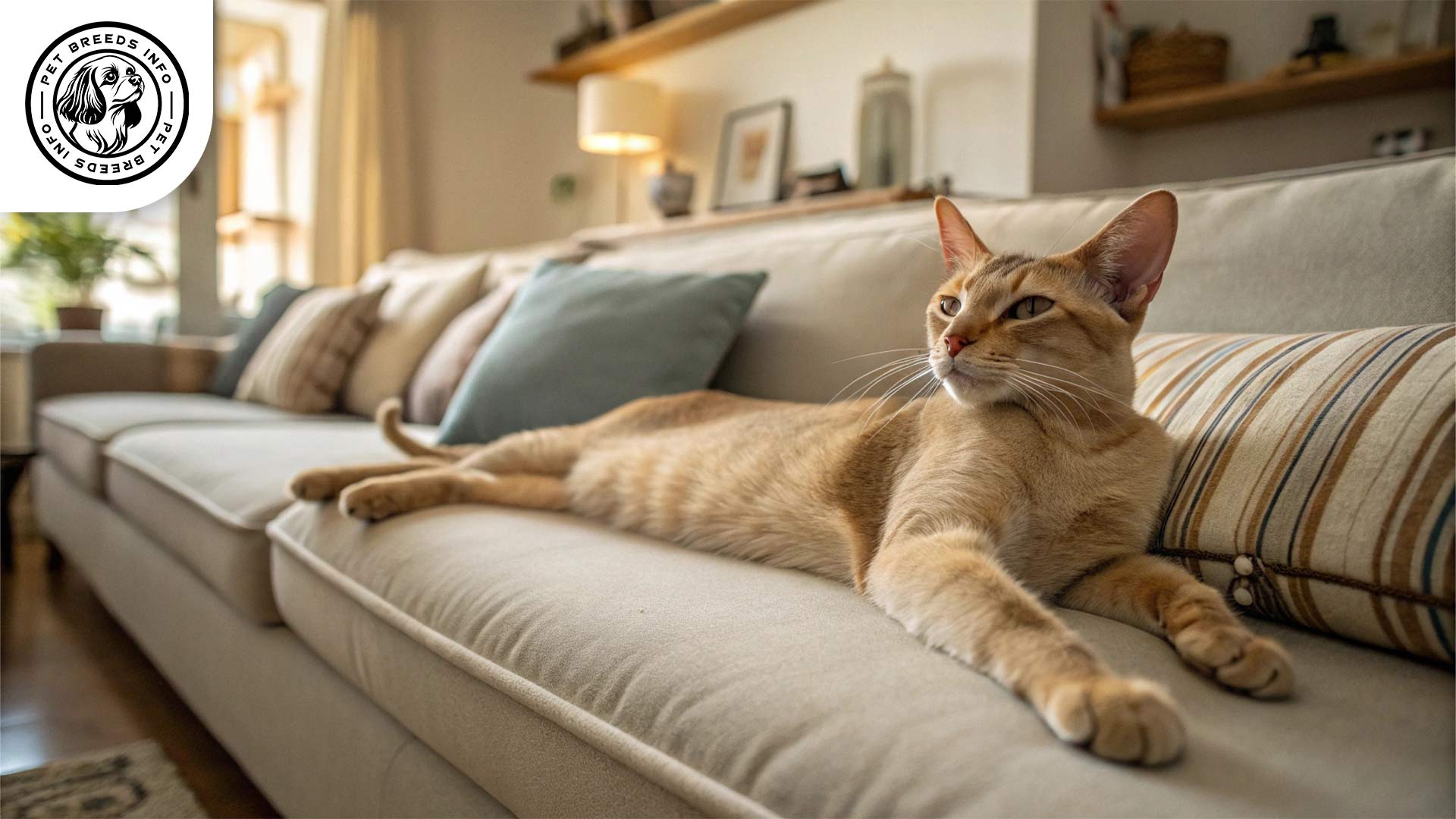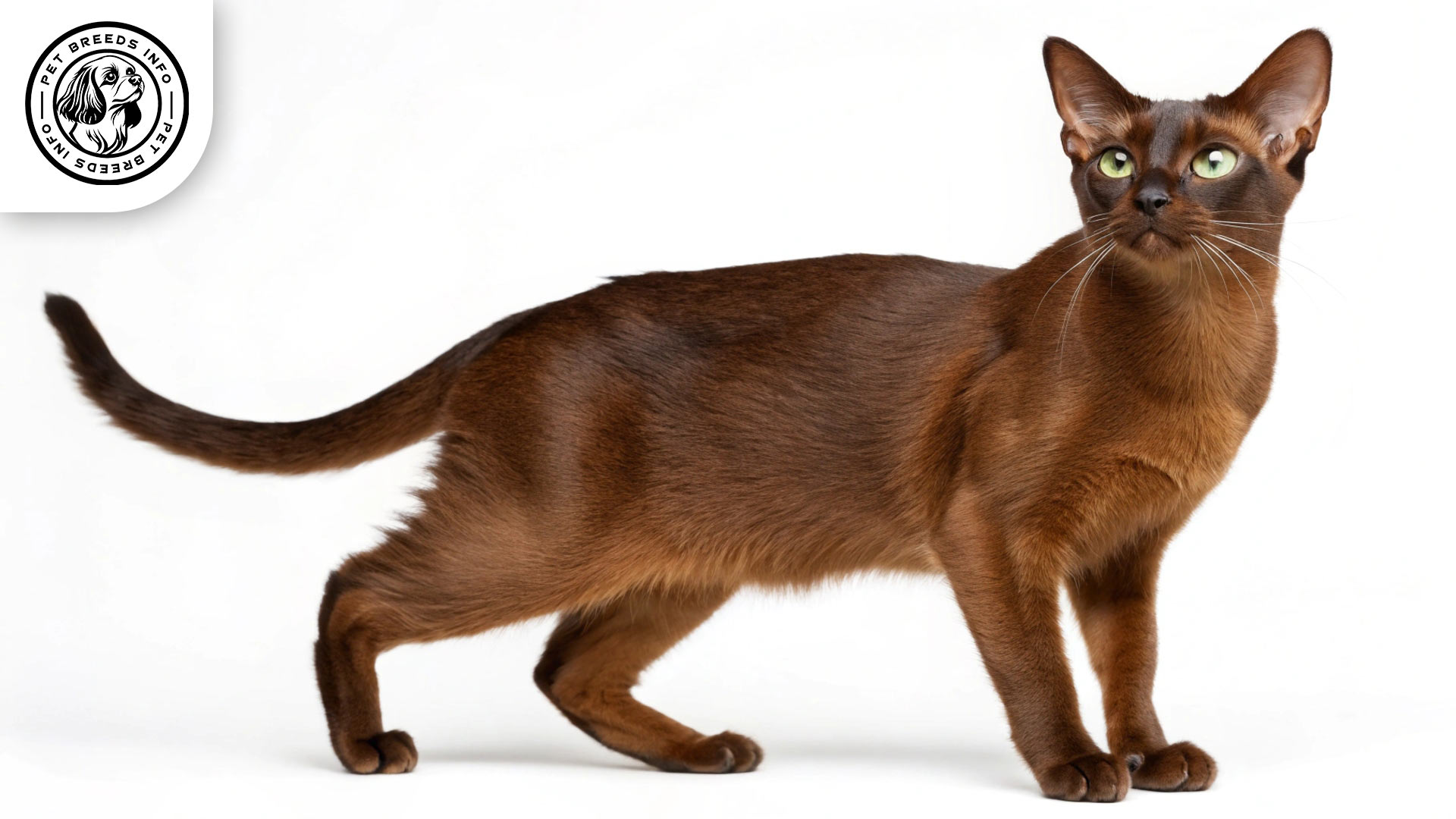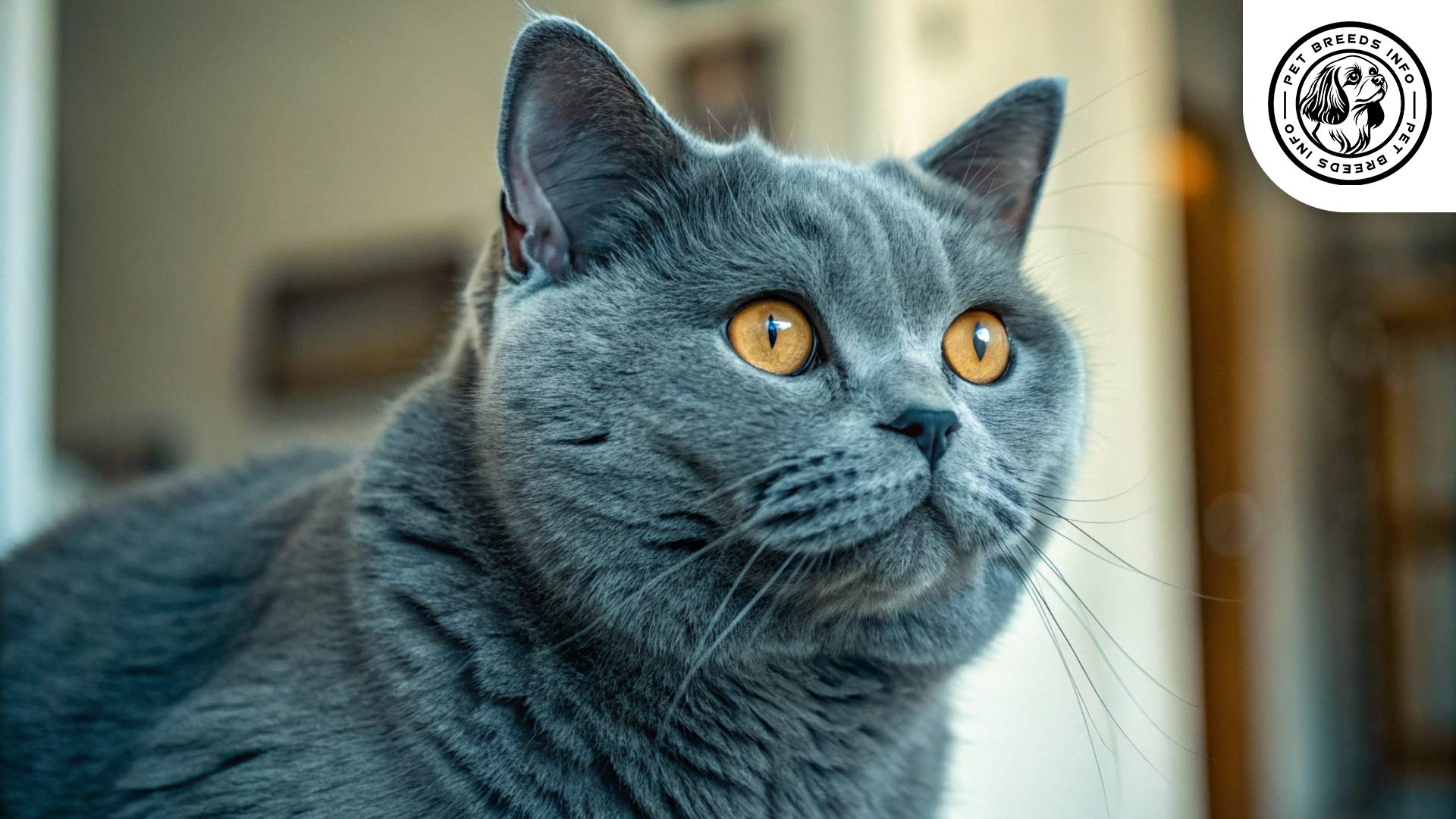British Shorthair Cat Breed: Size, Price & Personality
General Introduction of the Breed
The British Shorthair, known as “Britisch Kurzhaar” in German and “Britanica de pelo corto” in Spanish, is one of the most well-recognized and beloved cat breeds in the world. Sometimes referred to as the “British Blue” when in its classic blue-grey coat, this breed originates from the United Kingdom.
The British Shorthair traces its history back to Roman times when cats were brought to Britain for pest control. Over centuries, these cats interbred with native feline populations, eventually developing into the robust and hardy breed we know today. The breed gained recognition in cat shows during the late 19th century and has been refined through selective breeding over time.
The British Shorthair is a calm, independent, and affectionate cat with a plush coat, ideal for families and low-maintenance pet lovers.Quick Overview
Affectionate - 75%
Independent - 90%
Intelligent - 80%
Sociable - 70%
Vocal - 20%
Shedding - 60%
Energetic - 40%
62%
100
| Weight | Males: 9-17 lbs (4-8 kg), Females: 7-12 lbs (3-5.5 kg) |
| Lifespan | 12-20 years |
| Color | Wide variety, including blue, black, cream, red, white, solid, bi-color, tabby patterns |
| Diet | Balanced high-quality dry or wet cat food, portion control crucial to prevent obesity |
| Care | Weekly brushing, nail trimming, ear cleaning, dental care, moderate exercise, stable environment |
| Health | Prone to hypertrophic cardiomyopathy (HCM), polycystic kidney disease (PKD), and obesity-related issues |
| Nature | Intelligent, independent, calm, laid-back, friendly, tolerant, adaptable |
| Price | $800 to $2,500 (varies based on lineage, breeder, and location) |
Table of Contents
Physical Characteristics
The British Shorthair is a medium to large-sized cat with a muscular build. Males typically weigh between 9-17 pounds (4-8 kg), while females range from 7-12 pounds (3-5.5 kg). They stand about 12-14 inches (30-35 cm) tall.
This breed boasts a dense and plush double-layered coat, giving them a soft, velvety appearance. British Shorthairs come in a wide variety of colors, including blue, black, cream, red, white, and more, with solid, bi-color, and tabby patterns.
Their eyes are large, round, and expressive, often seen in copper, gold, blue, or green shades. Their ears are small to medium-sized with rounded tips, set wide apart on their broad heads. The tail is thick and round at the tip.
A distinctive physical trait of the British Shorthair is their round face, chubby cheeks, and dense coat, which give them a plush, teddy bear-like appearance.
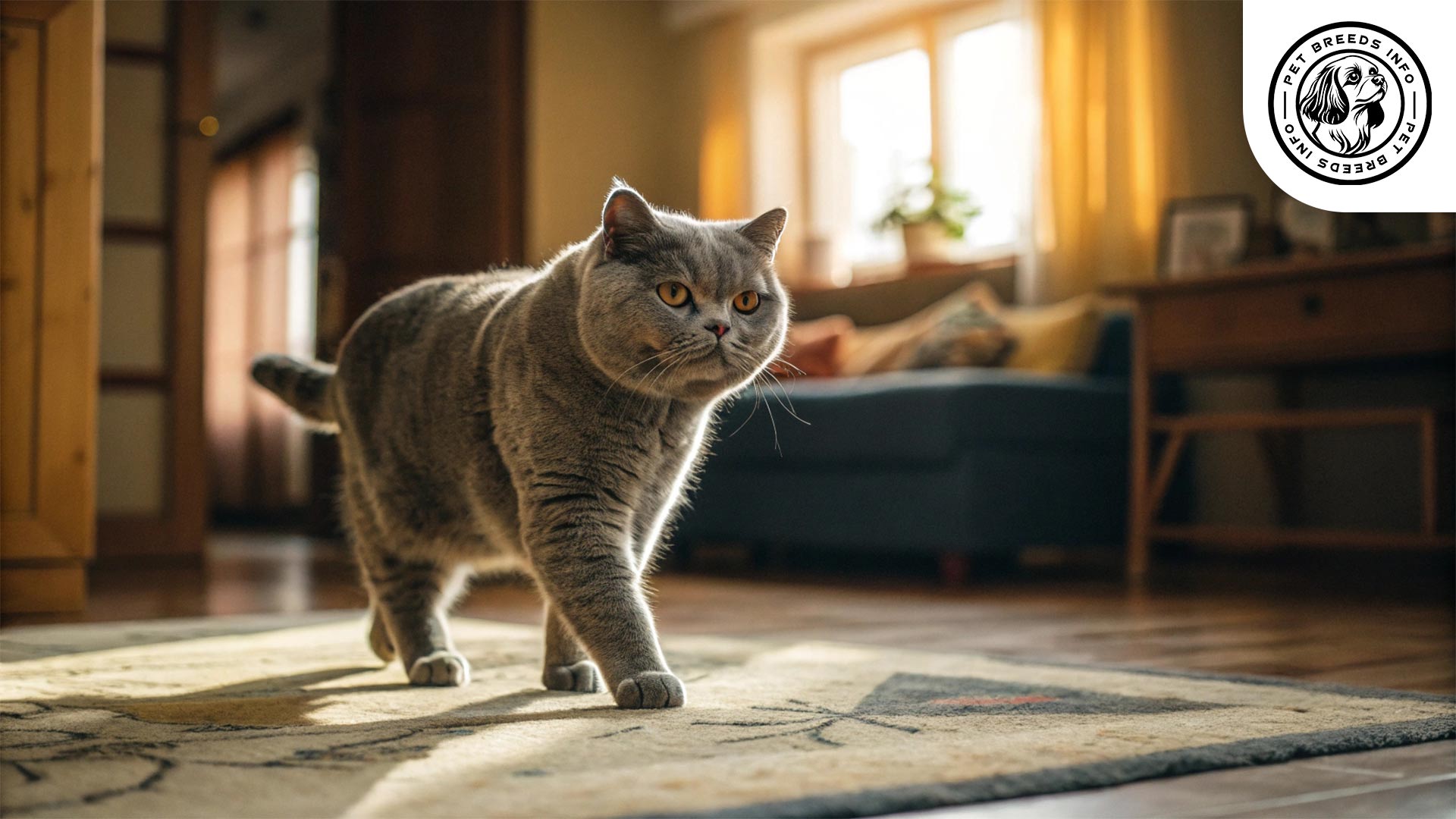
Personality and Temperament
The British Shorthair is known for its intelligence and independent nature, making it relatively easy to train. While they enjoy interactive play, they are not overly demanding and can entertain themselves.
They have a calm and laid-back demeanor, making them suitable for a wide range of households. While they form strong bonds with their owners, they are not particularly clingy and often enjoy having their own space.
British Shorthairs are friendly and tolerant, making them excellent companions for children and other pets. They tend to be playful but are not hyperactive or overly energetic. Their hunting instincts are moderate, and they enjoy occasional chasing games.
This breed adapts well to environmental changes, but they prefer a stable and peaceful home environment.
Care and Maintenance Requirements
British Shorthairs have moderate activity levels and enjoy interactive play but do not require extensive exercise. A few play sessions per day with toys or laser pointers are sufficient.
They adapt well to apartment living and do not require a large space. Their easygoing personality makes them well-suited for urban environments.
Their dense coat sheds moderately, so weekly brushing helps remove loose hair and prevent matting. They are generally low-maintenance but may shed more heavily in seasonal changes.
British Shorthairs tolerate cool temperatures well but may struggle in excessive heat. Providing a cool resting space in warm climates is ideal.
Routine hygiene includes nail trimming, ear cleaning when needed, and dental care to prevent tartar buildup.
Diet and Nutrition
British Shorthairs thrive on a balanced diet of high-quality dry or wet cat food, carefully selected to meet their nutritional needs, while some owners, under veterinary supervision, choose raw or natural diets to enhance their health. Due to their tendency toward obesity, strict portion control is essential, with meals ideally split into two or more servings daily to curb overeating and maintain a healthy weight.
Read More: Burmilla Cat
Owners must avoid toxic foods like chocolate, onions, garlic, and overly fatty or salty items, which can harm their well-being.
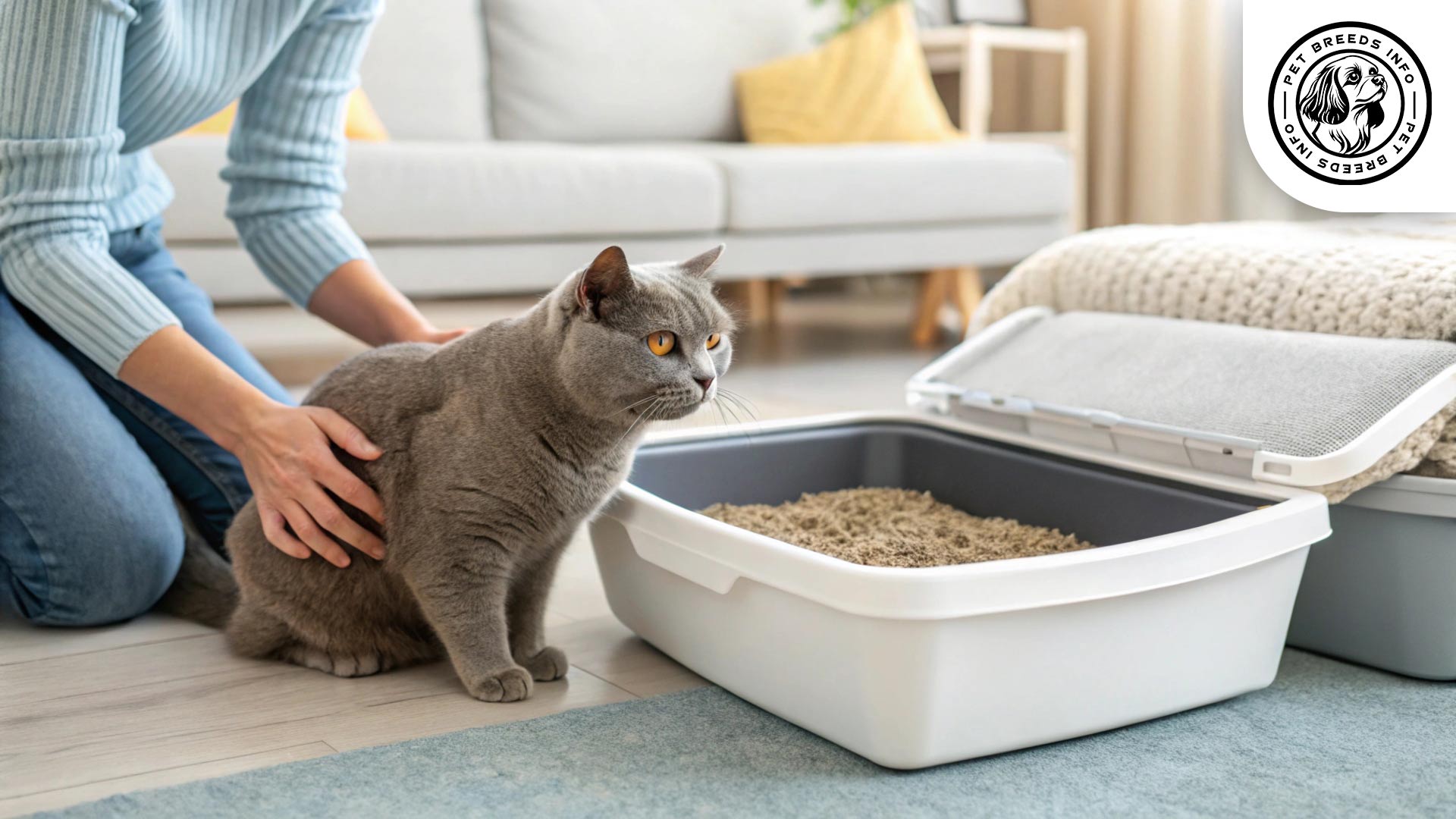
Health and Common Medical Issues
British Shorthairs are typically robust cats but may be susceptible to genetic conditions such as hypertrophic cardiomyopathy (HCM), a heart disorder, and polycystic kidney disease (PKD), which affects kidney function. Their stocky, muscular build makes them prone to obesity-related health issues, which can strain their joints and overall vitality if not managed. With proper care, these cats enjoy an average lifespan of 12 to 20 years. Regular veterinary check-ups, timely vaccinations, and consistent parasite prevention are vital to maintaining their health, ensuring early detection and treatment of potential issues for a long, vibrant life.
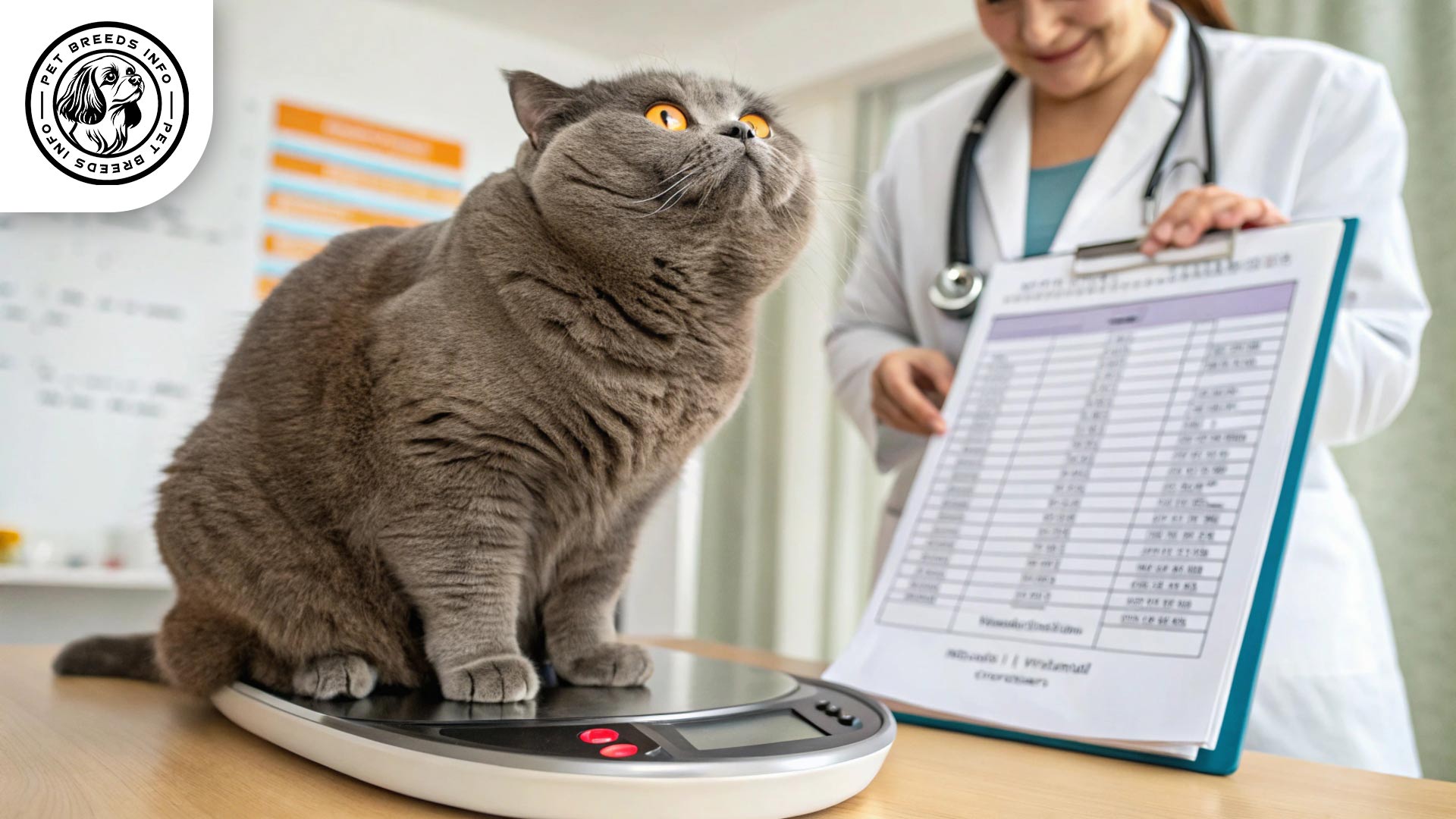
Training and Behavior Management
British Shorthairs are relatively easy to train, owing to their sharp intelligence and self-assured, independent nature, which makes them receptive to learning. Early socialization is key to nurturing a well-mannered, confident cat, helping them adapt comfortably to various environments and interactions. Positive reinforcement techniques, such as offering treats or enthusiastic praise, prove highly effective for training and shaping good behavior, encouraging these cats to respond eagerly while strengthening the bond with their owners.
Read More: Burmese Cat
Interaction with Other Animals and Humans
British Shorthairs are wonderful companions for children, showcasing a patient and tolerant demeanor that makes them ideal for family life. They typically get along well with other pets, particularly when introduced early, fostering harmonious relationships in multi-pet homes. Their adaptable and affectionate yet independent nature suits a variety of households, including families, couples, and singles, who appreciate their loving but low-maintenance personality. While they enjoy human companionship, British Shorthairs are perfectly content spending time alone, thriving without needing constant attention from their owners.
Price and Availability
The price of a British Shorthair kitten can vary widely depending on factors such as the kitten’s lineage, the breeder’s reputation, and geographic location, with costs typically ranging from $800 to $2,500. When considering adoption or purchase, it’s crucial to select reputable breeders who adhere to ethical breeding practices and provide comprehensive health screenings to ensure the kitten’s well-being. Adopting from shelters or rescue organizations is a rewarding alternative, offering a loving home to a British Shorthair in need, though availability may vary.
Conclusion and Final Thoughts
The British Shorthair is an excellent choice for owners seeking a calm, affectionate, and low-maintenance cat. Their independent yet loving nature makes them suitable for both individuals and families.
They thrive in stable and quiet environments, and their moderate activity levels make them well-adapted to apartment living.
Before adopting a British Shorthair, potential owners should consider their grooming needs, dietary requirements, and the breed’s tendency toward obesity.
With proper care, this charming and resilient breed makes a wonderful lifelong companion.
Read More: Bengal Cat
FAQ
What is the typical temperament of a British Shorthair cat?
British Shorthairs are known for their calm, laid-back, and independent nature. They are friendly and tolerant, making them excellent companions for families and individuals. While they enjoy interaction, they are not overly demanding and can entertain themselves.
What are the common health issues that British Shorthairs are prone to?
British Shorthairs can be prone to genetic conditions like hypertrophic cardiomyopathy (HCM) and polycystic kidney disease (PKD). They may also develop obesity-related issues due to their stocky build.
What are the grooming requirements for a British Shorthair?
British Shorthairs have a dense, plush coat that sheds moderately. Weekly brushing is recommended to remove loose hair and prevent matting. Routine nail trimming, ear cleaning, and dental care are also important.
What is the ideal diet for a British Shorthair?
A balanced diet of high-quality dry or wet cat food is recommended. Portion control is crucial to prevent obesity. Some owners may opt for a raw or natural diet with veterinary guidance.
How much does a British Shorthair kitten typically cost?
The cost of a British Shorthair kitten varies based on lineage, breeder reputation, and location. Prices typically range from $800 to $2,500.
